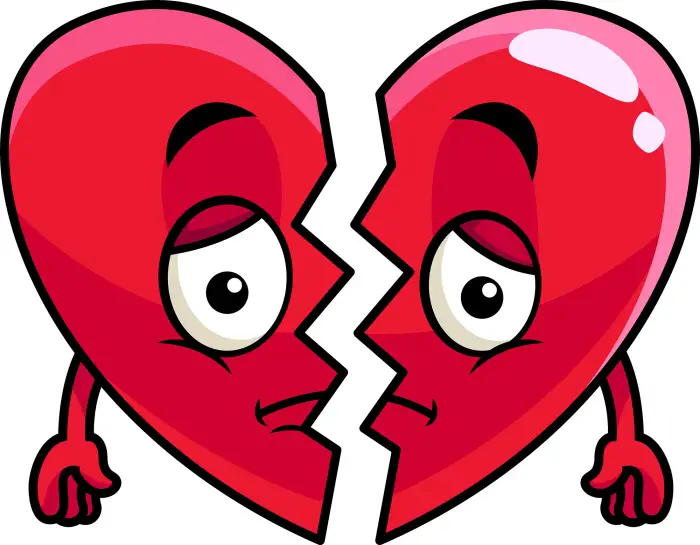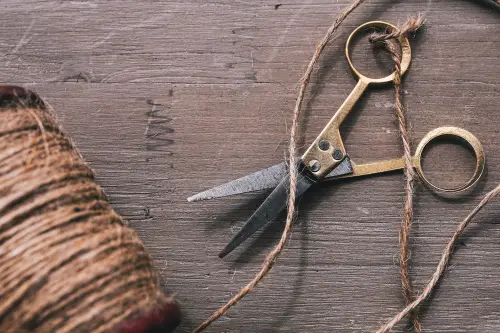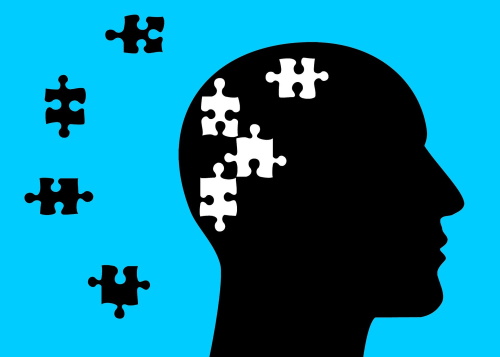
Mothers and sons can have a very special relationship, but what happens when that loving bond turns to loathing? How did a loving mother-son relationship become hateful? Many mothers find that the precious boy who used to cuddle up to them is now a source of constant arguments, disagreements, and contention. But why? Is it really possible for sons to hate their mothers and if so, what do we need to know about this?
Sons who hate their mothers are rare, but exist. This is a complex situation of factors ranging from neglectful parenting to early childhood attachment problems to mental illness. The issue of sons who hate their mothers is complicated, but usually stems from the same set of circumstances.
A mother may wonder how her son could hate her after she gave birth to him. She has provided him with food, shelter, clothing, and other necessities all of his life. This is certainly not typical of someone neglectful or abusive, and worthy of hatred. Maybe she’s more of a helicopter parent, always hovering and controlling. Or perhaps she has nurtured him to her greatest ability.
It may not seem a stretch to imagine a son hating a mean, harmful mother, but some sons truly hate their mothers, despite the moms being utterly caring and loving.
Contents
- There is No One Cause
- Controlling Mothers May Alienate Their Sons
- Sons Who Hate Their Mothers Tend to Have Difficult Adult Relationships
- If Boundaries Are Disrespected, Things Will Escalate
- Sons Who Hate Their Mothers May Simply Cut Off Contact
- Mental Illness and Personality Disorders Can Shatter Relationships
- Wrapping Up What to Know about Sons Who Hate Their Mothers
There is No One Cause
As a mom of four, three of whom are sons, this is a topic near and dear to me. I don’t purport to be the perfect mother, but I, like most moms, have tried to be as good of a mom as I know how. I can’t imagine my sons hating me, but I’m sure neither can most moms. As such, I’ve approached this topic sincerely and am happy to share with you what I’ve learned about this paradoxical issue.
For the most part, the first thing I’ve learned about sons who hate their mothers is that there is not a one-size-fits-all reason behind it.
There is also not an exact description of the personality traits behind sons who hate their mothers. These sons (and mothers) have varying backgrounds and cultures, and come from all walks of life. And no one thing always means sons will love or hate their mothers.
They may have this hate due to a controlling mother; physical or mental abuse; a mother overstepping boundaries; or being treated differently than a sibling. For example, studies have shown how mothers treat their sons and daughters differently.
An academic study in the Journal of Family Psychology studied 1,500 adolescents to recognize the parenting differences African American mothers had with their sons and daughters. They concluded that the males argued more with the mothers, had fewer responsibilities like chores, and could not make decisions like daughters.
Although this psychological study examined later-born, not first-born, boys, it did illustrate how mothers may treat their sons differently and, in turn, could lead to negative effects.
Sons who hate their mothers may exhibit the following traits:
- Aggressive behavior
- Avoidance and detachment in relationships
- Distrust of females
- Emotional issues in childhood and in adult life
What’s tricky to comprehend, though, is that a son from an abusive mother will just as likely love her as hate her. And a son from a loving mother may love her back, or hate her. This is the conundrum. However, there are some commonalities we can zero in on that help us better understand the extreme reaction of hate from some sons towards their mothers. We’ll look at these below.
Controlling Mothers May Alienate Their Sons
An overly controlling mother may lead sons to hate them. Renowned clinical psychologist and respected university professor, Jordan B. Peterson, has addressed the mother-son relationship extensively via professional talks and books. Peterson attributes the mother’s fear of losing her son as a reason for her controlling behavior to manifest itself-to avoid or try to avoid her son leaving her. This is usually tied to the mother’s personal loneliness. (If you’d like more on Jordan Peterson and his perspective on life’s issues, his latest book, Beyond Order: 12 More Rules for Life is now available at Amazon.)
The relationship between a mother and son is extremely important to a male’s upbringing, just as the father-son relationship is. Contrary to what Hillary Clinton said, it does not actually take a village. Instead it takes two to raise a healthy, happy son: a mother and a father.
Now there are always exceptions; but remember, they’re called exceptions for a reason, and not the rule.
A son’s relationship with his mother not only helps the son form his very own identity but also influences how he interacts with others, including other women, later on in life. Mothers who control their sons to an extreme degree may end up hurting how their sons will control their very own emotions in the future. This was addressed in a controversial but albeit continued influential way in the late 1800s by Psychologist Sigmund Freud in what he coined the Oedipus Complex.
Oedipus Complex: Complex of emotions of the son around age 3-5 towards his mother that positively or negatively affects his future relationships depending on the attachments formed in his childhood environment (Source: Simply Psychology)
This is not to say a mother should not be in tune with her son’s life and parent him as he grows. Parenting by definition isn’t ‘overbearing’ or controlling. Parenting means taking care of your child, making decisions for your child’s well-being, and raising your child to be a good, moral person. It also means making rules to guide your child and disciplining your child when needed. That’s what you’re supposed to do, as a parent.
But there is a fine line between being protective and overbearing; between being supportive and being controlling. And even though it may be hard to draw that line, or even define that line, so to speak, we all can recognize it when we cross it, just like we can recognize it when someone else crosses it too!
Many sons who hate their mothers say it is because they grew up with a domineering, selfish, calculating, and scheming mother. Yet, some also say it’s because of something more covert such as a slyly, manipulative mother. The son ends up resenting this behavior and his mother.
One of the main reasons a son will hate his controlling mother is because of the guilt she constantly makes him feel. Sons in these relationships will feel obligated to help their mothers through their problems and issues constantly. Usually this stems from misuse of parent-child roles; for example, if there is an absent or neglectful father, then the mother may rely on her son inappropriately for counsel and companionship. This is not healthy.
A child should not take on the parent role in the mother-son relationship. This leads to resentment from the son.
Controlling mothers also believe their sons are more of a possession than a child. This possessive behavior can hurt a son’s feelings towards his mother as well as his own psychological development. It may also damage his relationships with other women. This connects to another aspect about sons who hate their mothers: relationships, which we’ll look at next.
Disclaimer regarding normal parent-child roles: There is the exception of the changing child-parent relationship when the parent is aging and the child takes on a care-giver identity akin to parenting. Even in these situations, though, the child still treats the parent deferentially and the parent continues to think of the child in his appropriate role. In normal conditions, this shift in the parent-child relationship does not lead to sons hating their mothers.
Sons Who Hate Their Mothers Tend to Have Difficult Adult Relationships
Sons who hate their mothers may end up having a hard time developing and maintaining their own relationships as they grow into adulthood. A son will not simply begin hating his mother overnight. Instead, years of suppressing negative emotions may affect the male’s development and ability to establish intimacy in future relationships.
For example, a study in the academic journal Personal Relationships examined how adult attachment styles are influenced by how close the mother was to her children. The children from mothers who were avoidant, anxious, or ambivalent did not rely on their mothers for support. This can be clearly seen in the actions of males in particular.
It is possible for a man who hates his mother to still find happy relationships as an adult, but there will be a disordered component, too. The dysfunction of the mother-son relationship will always affect his other relationships, in either big or small ways, whether the son likes or not.
In addition, he will hate his mother more if he feels she has disrespected his relationships. Some signs that a son may continue to have problems with his maternal relationship when he develops his own mature, adult relationships later in life include:
- He hides his relationships from his mother.
- He talks badly about his mother and/or all women.
- He doesn’t talk about his mother with others in his relationships.
- He becomes upset with any family involvement or references.
- He avoids long-term relationships.
As well, there are signs from a mother that could lead to her son hating her:
- His mother tries to triangulate by going through the spouse to get what she wants from the son.
- She takes unwelcome liberties in her son’s relationships.
- She bad-mouths her son’s girlfriend or spouse.
- She puts down her son to him and others.
- She involves herself in her son’s personal relationship business.
The more a mother may interfere or complain about a son’s relationship, the more he will resent and even hate her. A mother who controlled her son may feel it is okay to control his spouse, but this will create a further wedge in the relationship.
If a son already has animosity towards his mother from childhood, this will worsen in adulthood.
If Boundaries Are Disrespected, Things Will Escalate
The hatred between a son and his mother develops over time when boundaries continue to be disrespected. A son whose mother is constantly prying may end up being constantly angry with his interfering parent. These sons also seem to portray a sense of avoidance when it comes to the nosy mother.
Disrespecting boundaries may start at a young age and continue through adulthood. There is a difference between the concerned mother giving advice out of love and the judgmental, pushy, and intrusive mother who just wants to tell her son what to do. Many times, a son will hate his mother because she is continually crossing boundaries, criticizing, and disrespecting his choices.
What does this constant meddling say about sons who hate their mothers? The sons may feel their mothers do not trust the sons’ actions nor have the sons’ well-being in mind. Therefore, the sons feel the mothers don’t have faith in them as adults, or of their ability to make good decisions. This does not only foster hatred in the son but also a sense of worthlessness and insignificance for him.
Sons need to feel that their mothers believe in them.
A mother who crosses boundaries will inevitably have a son who will grow up to cut off contact with her. This final act of estrangement is a characteristic of sons who hate their mothers. If a mother cannot let her son live his own life and continues to stick her nose in where it does not belong, a hateful son may distance himself from her permanently.
Sons Who Hate Their Mothers May Simply Cut Off Contact

Sons who hate their mothers may get so tired of what they consider a toxic relationship that they simply abandon it altogether. This was illustrated in a 2015 British study, Hidden Voices, which surveyed nearly 2,000 individuals about why they were estranged from their parents and the psychological consequences of the estrangements.
The study found that participants listed mental health issues and emotional abuse as reasons for their estrangements. However, for sons, their negative relationship with their mother more often had ripple effects to break down other relationships. For example, issues such as in-laws, marriage, and even divorce were common reasons a son would find estrangement necessary.
The males who cut off contact with their mothers listed the following reasons for their estrangements:
- 37% had issues relating to divorce
- 30% said mismatched expectations about the family roles and relationships
- 28% stated a traumatic event was the underlying cause for estrangement
- 25% had issues relating to in-laws
- 25% had issues relating to marriage
From the parents’ side, having a better understanding of their sons’ point of view was a key factor. Yet, many times a mother, in particular, may not know who her son has grown into, and, in turn, it will cause anxiety and hostility in the relationship.
In addition, the study showed that divorce also affects a son’s outlook towards his parents and mother, specifically. For this reason, divorce should not be taken lightly (and I argue, if at all) because it leads to the breakdown of the family unit, which can lead to the breakdown of parent-child relationships, too.
Mental Illness and Personality Disorders Can Shatter Relationships

Sons with mental illness or personality disorders can become difficult to live with, especially for their parents. This is exacerbated when the issue goes untreated. This is especially true in sons who have Borderline Personality Disorder or Narcissistic Personality Disorder.
Narcissistic Personality Disorder: People with NPD are rude, self-centered, demanding, and feel superior to all others, including their parents. They respond poorly to critique and have a high need for excessive praise. (Source: Healthline)
Though traits of NPD may show up during childhood or late adolescence, most people with NPD are diagnosed in early adulthood. Males in particular have a higher rate of diagnosis of Narcissistic Personality Disorder than females.
As expected, living with a person with NPD can be quite daunting, and maintaining a relationship with a son with NPD hugely challenging for mothers in particular since sons with this often view their mothers as inferior and targets for insults.
Dr.Timothy Legg says that if “you’re not willing to sacrifice the relationship, then you must modify your behavior in relation to the behavior of the person with NPD.” And to do this successfully usually requires regular and consistent therapy involving all stakeholders, if possible: the son, the mother, and the father.
As shown above, sons who suffer from mental disorders or illness may have irrational and negative feelings towards their mothers, affecting their long-term relationship. With proper medical care, it is possible for sons and mothers to repair their relationship but this isn’t guaranteed; and it’s especially difficult when adult sons with illness need to continue to live with their parents as a result.
One study detailed the importance of coping strategies for mothers of adult sons with mental illness/disability. Yet even with proper coping mechanisms employed, the relationship is strained when mental issues are involved.
Some personality disorders can cause a person to have a warped perspective on themselves and others. This can do further harm to the mother-son relationship.
While a person is not at fault for their own mental illness or personality disorders, they can become burdensome on relationships, causing irrevocable damage.
Wrapping Up What to Know about Sons Who Hate Their Mothers
In conclusion, there are often many underlying and connecting issues that lead to sons hating their mothers. Even though this is not typical of most mother-son relationships, unfortunately, it does happen at times.
To recap, some factors or causes leading to sons hating their mothers are:
- controlling mothers
- misuse of parent-child roles
- crossing boundaries
- mental illness
Although this is a complicated issue, I hope I’ve shed some light on it for you. For further study, you may want to read my articles about sons who treat their mothers poorly and sons’ closeness to their mothers and fathers, as well as check out the additional resources listed below.
Additional Sources:
https://aleteia.org/2018/12/09/the-impact-of-controlling-mothers-on-their-sons/
https://www.bustle.com/p/9-signs-your-mom-is-too-controlling-how-to-deal-with-it-36863
http://standalone.org.uk/wp-content/uploads/2015/12/HiddenVoices.FinalReport.pdf
https://www.livescience.com/8156-boys-close-relationship-mom.html
